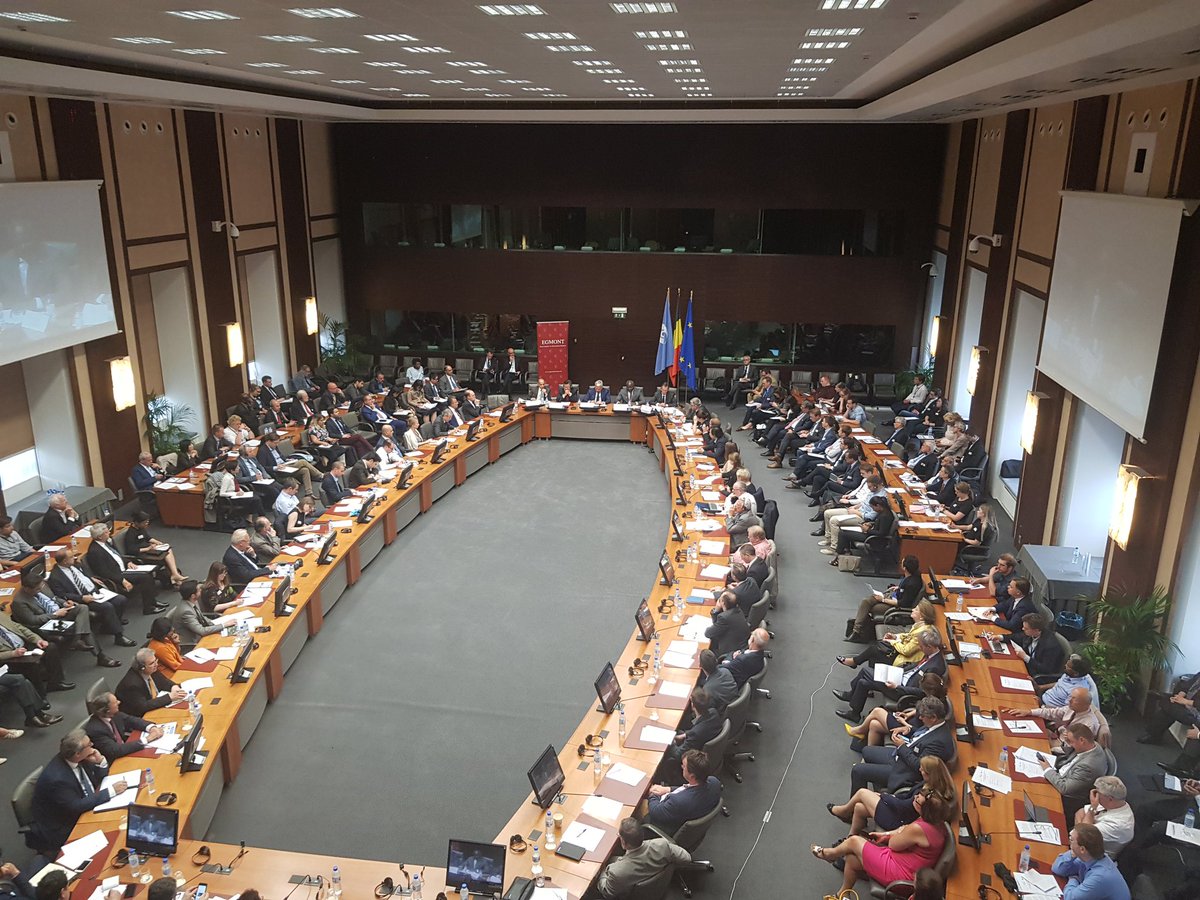LOC23:35
20:35 GMT
 Conference on the Comprehensive Nuclear-Test-Ban-Treaty (CTBT) in Brussels
Conference on the Comprehensive Nuclear-Test-Ban-Treaty (CTBT) in Brussels
BRUSSELS, May 22 (KUNA) -- Belgian Foreign Minister Didier Reynders said Tuesday that European Union is ready to protect interests of European companies who want to do business with Iran after US decided to pull out of the Iran nuclear deal, known as Joint Comprehensive Plan of Action (JCPOA).
But the decisions rests upon the European companies themselves, he added.
"We try to save the JCPOA. We have many possibilities to go further with Iran in the JCPOA first to ask the UN to implement it and to encourage the European Investment Bank to support the European SMEs willing to invest in Iran," Reynders told a conference on the Comprehensive Nuclear-Test-Ban-Treaty (CTBT) in Brussels this evening.
"First of all it is the decision of the larger companies in Europe to go to Iran or not and trade and invest. It is difficult to evaluate at the moment with Iran. This is an internal decision because we know there is a risk of sanctions," he said.
The US has also decided to re-impose sanctions that can also put penalties on European companies doing business with Iran.
On her part, EU High Representative Federica Mogherini, in her message to the conference, said "protecting the non-proliferation deal with Iran is also a way to strengthen the perspective of a de-nuclearized Korean peninsula.
"The credibility of every non-proliferation process is at stake.
"Undermining the deal with Iran can only make the negotiations with North Korea more difficult," she warned.
Meanwhile, in his opening address to the conference, Reynders emphasized that even if recent announcements by North Korea have instilled hope that a world free of nuclear tests may be within reach, only the signature and the ratification of the CTBT will offer the prospect of lasting security.
He stressed that the banning of nuclear tests remains a crucial step on the road towards a world without nuclear weapons.
The Belgian Ministry of Foreign Affairs and the Belgian think-tank Egmont Institute organized an international conference titled "Towards a world without nuclear tests: fulfilling the promise."
It is part of the efforts made by Belgium to facilitate the entry into force of the treaty. This mandate, also known under the name of the "Article XIV (14) Conference", was given to Belgium and Iraq for the years 2017-2019.
Iraqi Ambassador to Belgium Jawad Al Chlaihawi who represented his country at the conference said Iraq signed the CTBT in 2008 and was ratified by Iraqi parliament in 2013.
"The government of Iraq believes that the maintenance of peace and removal of threats to peace requires full international promotion of disarmament and non-proliferation of weapons of mass destructions," he said.
Comprehensive Nuclear-Test-Ban-Treaty Organization (CTBTO) Executive Secretary Lassina Zerbo in his keynote speech said that the CTBT is an international treaty which prohibits all nuclear tests or any other kind of nuclear explosion, be it for peaceful or military ends and in any environment.
Open to signature in 1996, it must still be signed and/or ratified by eight countries before it can enter into force.
Since the beginning of the 21st century, no other country than North Korea has tested nuclear devices. All other countries in the world respect a voluntary moratorium.
Despite its "interim" character, the CTBTO has succeeded in establishing a verification regime which is already so advanced that its detection capability is greater than negotiators had thought possible, he added. (end)
nk.mb